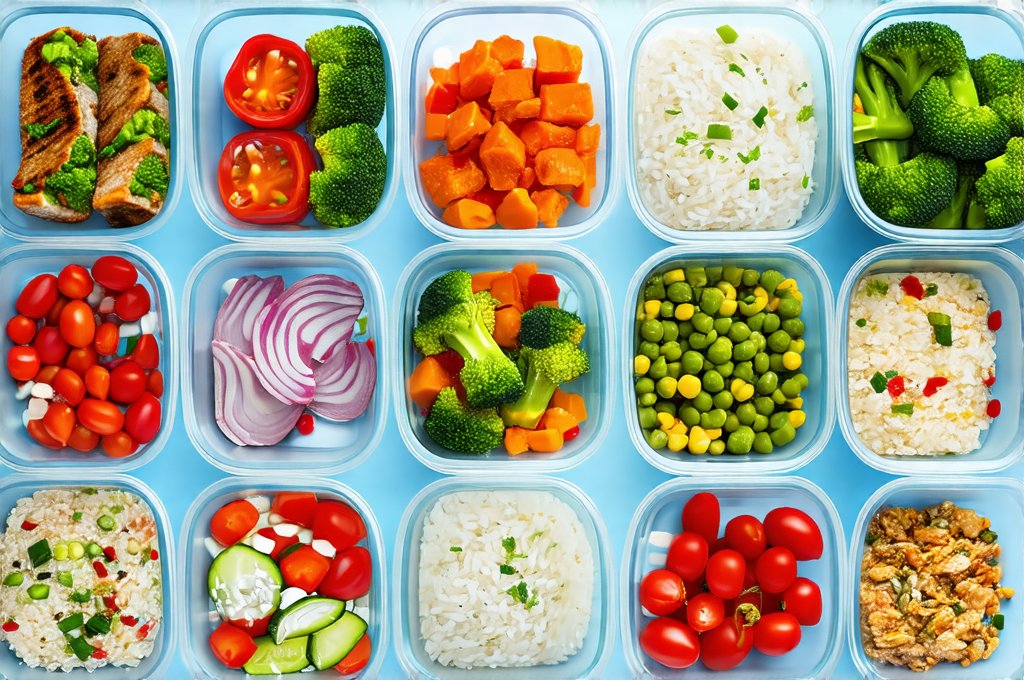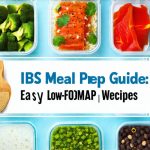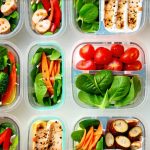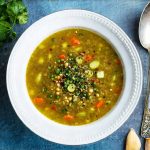Gastroesophageal Reflux Disease (GERD) can significantly impact daily life, often requiring not just medication but also careful attention to dietary habits. Many individuals find that specific foods trigger their symptoms – heartburn, acid reflux, and indigestion – while others offer relief. While a ‘one-size-fits-all’ diet doesn’t exist for GERD sufferers (individual triggers vary greatly), a proactive approach centered around mindful meal planning can dramatically reduce discomfort and improve overall well-being. This isn’t about deprivation; it’s about making informed choices to support digestive health and minimize reflux episodes.
The cornerstone of managing GERD through diet is understanding trigger foods and incorporating those that are gentler on the esophagus and stomach. Common culprits include fatty or fried foods, citrus fruits, tomatoes (and tomato-based products), chocolate, mint, carbonated beverages, caffeine, and alcohol. However, recognizing your personal triggers is paramount – keeping a food diary can be incredibly helpful in identifying which items exacerbate your symptoms. Meal prepping isn’t just about convenience; it allows you to control ingredients, portion sizes, and timing, all of which are crucial for GERD management. It empowers you to take charge of what you consume, reducing the likelihood of impulsive choices that might lead to discomfort. Considering a gut health routine alongside dietary changes can be incredibly beneficial.
Building Your GERD-Friendly Pantry & Shopping List
The foundation of successful meal prep is a well-stocked pantry filled with foods that generally promote digestive comfort. Think beyond simply avoiding trigger foods; focus on actively including options known for being gentle and supportive. This isn’t about restriction, it’s about building a repertoire of delicious and satisfying meals that won’t leave you feeling uncomfortable. Prioritizing whole, unprocessed foods is always beneficial, but especially so when managing GERD. You might also find value in learning how to build a minimal ingredient meal plan for simplicity.
- Lean proteins: Chicken breast (skinless), turkey, fish (salmon, cod), tofu
- Whole grains: Oatmeal, brown rice, quinoa
- Non-citrus fruits: Bananas, melons, pears
- Vegetables: Broccoli, green beans, carrots, potatoes (avoid fried preparations)
- Healthy fats: Avocado, olive oil, nuts and seeds in moderation
- Dairy alternatives: Almond milk, oat milk (if tolerated – some individuals find dairy aggravating)
When creating your shopping list, organize it by grocery store section to streamline the process. Consider utilizing online grocery ordering or creating a master list on your phone for easy reference during each shop. Don’t forget to check labels carefully; hidden ingredients like tomato paste in sauces or mint flavoring can derail even the best intentions. A little preparation here saves significant discomfort later. A key part of this stage is acknowledging that individual tolerances vary. Just because something is generally considered GERD-friendly doesn’t guarantee it won’t affect you. Gut safe meal habits can help you navigate these sensitivities.
Sample Weekly Meal Prep Plan & Recipes
Creating a weekly meal prep plan requires a bit of upfront effort but pays dividends in reduced stress and improved digestive health. Start small – don’t try to overhaul your entire diet overnight. Begin with prepping just a few meals or components, then gradually expand as you become more comfortable. This sample plan focuses on breakfast, lunch, and dinner, aiming for simplicity and adaptability. Remember to adjust portion sizes based on your individual needs and activity level.
A typical week might include:
* Breakfast: Oatmeal with banana slices and almond milk; Scrambled eggs with spinach and whole-wheat toast.
* Lunch: Grilled chicken salad with mixed greens and a light olive oil vinaigrette; Leftover dinner from the previous night.
* Dinner: Baked salmon with roasted broccoli and quinoa; Turkey meatballs with zucchini noodles and tomato-free marinara sauce (using carrot puree as a base); Chicken stir-fry with brown rice and non-trigger vegetables.
For recipes, focus on simple preparations that minimize added fats and irritating ingredients. For example, instead of deep-frying chicken, bake or grill it. Instead of creamy sauces, opt for herb-infused olive oil or light vegetable broths. Carrot puree makes an excellent substitute for tomato based marinara in many applications. Prioritize cooking methods like baking, grilling, steaming, and poaching over frying. This allows you to enjoy flavorful meals without exacerbating GERD symptoms. It’s also helpful to consider a liver-friendly meal plan for overall digestive support.
Optimizing Meal Prep Workflow
Meal prepping doesn’t have to be a daunting task. Streamlining your workflow can make the process more manageable and enjoyable. One effective strategy is “batch cooking” – preparing large quantities of staple ingredients at once, then using them in various meals throughout the week. For instance, cook a big batch of quinoa on Sunday and use it as a base for salads, side dishes, or even breakfast bowls.
- Dedicate specific time slots: Schedule 2–3 hours per week solely for meal prepping.
- Utilize kitchen tools: Invest in quality containers (glass is preferable), a food processor, and a slow cooker to simplify tasks.
- Prep ingredients simultaneously: While one item is baking, chop vegetables for another recipe.
- Label everything clearly: Include date prepared and contents to avoid confusion.
Another helpful tip is to freeze portions of meals or individual ingredients for future use. This is particularly useful for soups, stews, and cooked proteins. Freezing allows you to have quick and easy options available on busy days when you don’t have time to cook from scratch. Freezing extends the shelf life of your prepped food and reduces waste.
Addressing Common Meal Prep Challenges
Even with careful planning, challenges can arise during meal prep. One common issue is food fatigue – getting tired of eating the same meals repeatedly. To combat this, vary your recipes each week and experiment with different spices and herbs to create new flavor profiles. Don’t be afraid to get creative!
- Spice it up: Ginger, turmeric, cinnamon, and fennel are known for their digestive benefits and can add flavorful complexity.
- Rotate recipes: Keep a running list of GERD-friendly recipes and rotate them regularly.
- Portion control: Divide meals into smaller portions to avoid feeling overwhelmed by large servings.
Another challenge is maintaining motivation. Meal prepping requires discipline, but it’s easier when you view it as an investment in your health and well-being. Reward yourself for sticking to your plan – perhaps with a relaxing bath or a good book. Remember why you started meal prepping in the first place: to reduce GERD symptoms and improve your quality of life. A gut recovery meal plan can also help support long-term digestive health.
Staying Flexible & Listening to Your Body
While a meal prep plan provides structure, it’s crucial to remain flexible and listen to your body’s signals. If a particular food causes discomfort, even if it’s generally considered GERD-friendly, remove it from your diet. Keep a detailed food diary to track what you eat and how it affects your symptoms – this will help you refine your plan over time.
- Adjust portion sizes: Modify servings based on your appetite and activity level.
- Swap ingredients: If a recipe calls for an ingredient that triggers your symptoms, substitute it with a gentler alternative.
- Don’t be afraid to deviate: Life happens! If you occasionally indulge in a trigger food, don’t beat yourself up about it. Just get back on track with your meal prep plan as soon as possible.
Ultimately, the best GERD meal prep plan is one that works for you. It’s a personalized approach to dietary management that prioritizes digestive health and empowers you to take control of your well-being. Remember that consistency is key, but so is adaptability and self-awareness. The goal isn’t perfection; it’s progress toward a more comfortable and fulfilling life. Planning a gut friendly weekend menu can also offer flexibility without compromising your health goals.


















